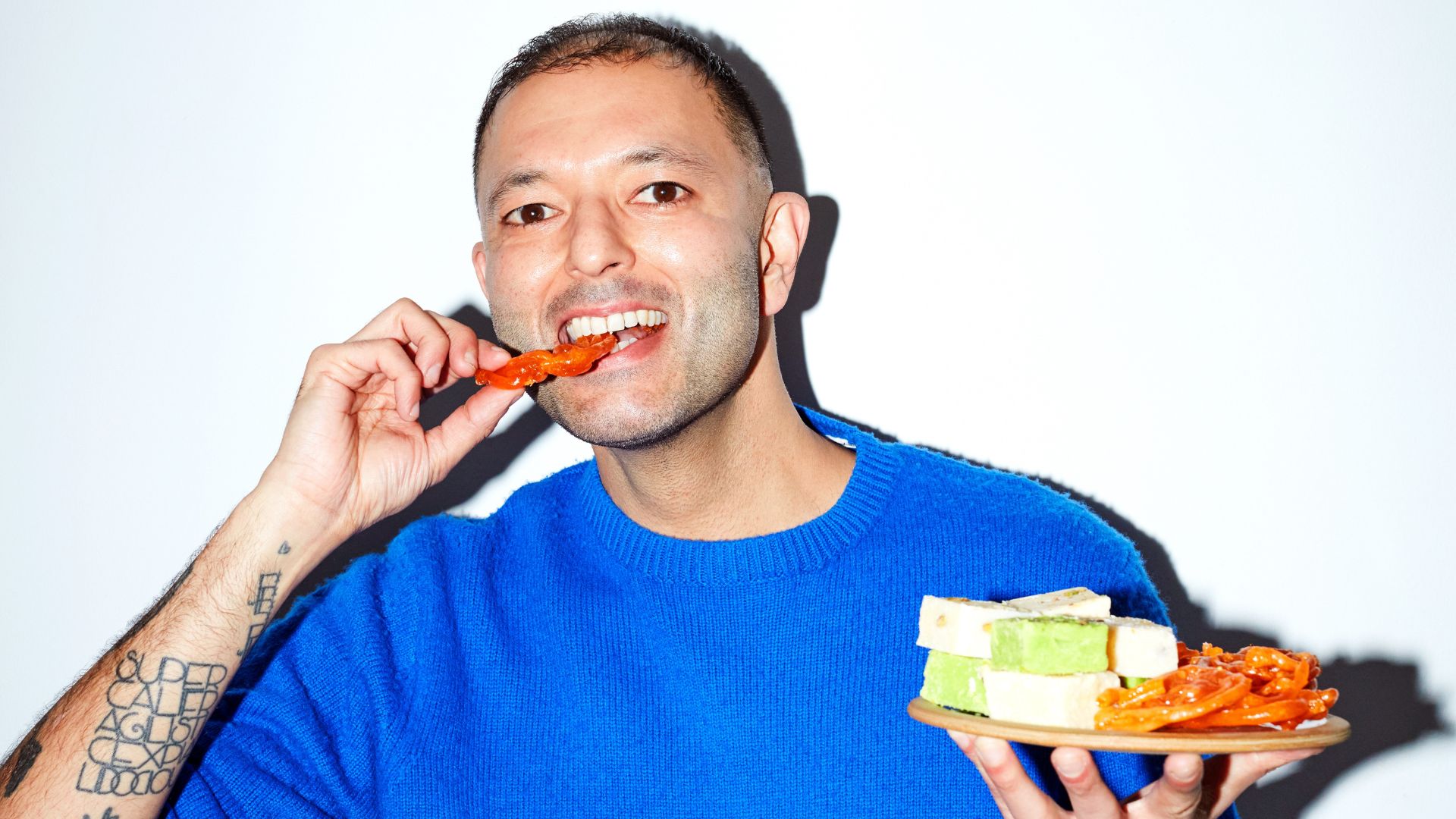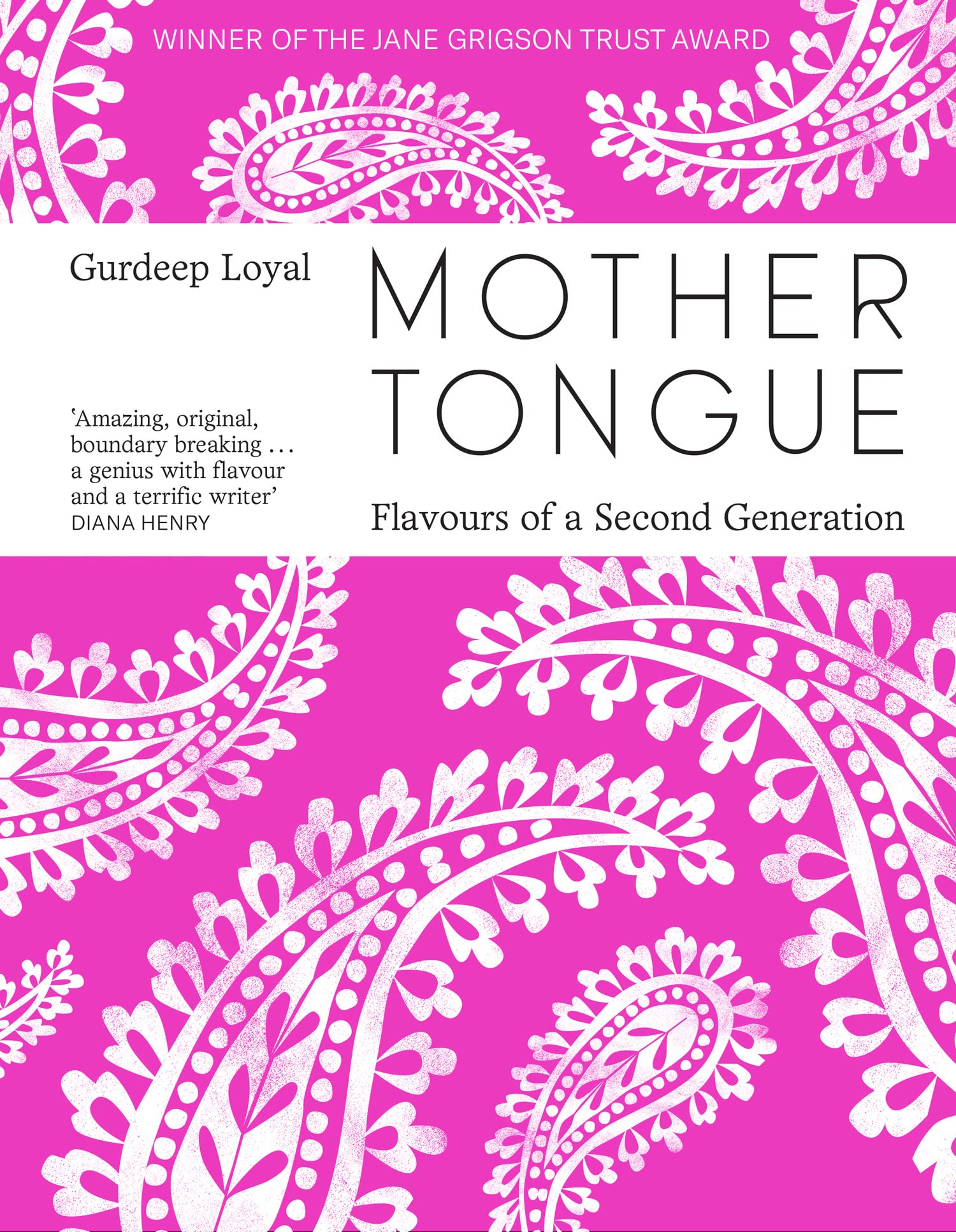You are viewing your 1 free article this month. Login to read more articles.
Gurdeep Loyal blends flavours and heritage in his début cookbook
 Caroline Sanderson
Caroline SandersonCaroline Sanderson is a non-fiction writer, editor and books journalist. Her books include a travel narrative, A Rambling Fancy: in the F ...more
First-time author Gurdeep Loyal’s cookbook delivers a flavour punch of hybrid recipes that embrace the traditions of British and Indian cuisine.

Caroline Sanderson is a non-fiction writer, editor and books journalist. Her books include a travel narrative, A Rambling Fancy: in the F ...more
"My culinary palate is rooted to my mother’s tongue, and hers to her mother before her; an intergenerational lineage of love that crosses continents, connecting the past to the present through taste.”
So writes Gurdeep Loyal in his début cookbook, Mother Tongue: Flavours of a Second Generation, in which he explores his British Indian identity through more than 100 palate-pleasuring recipes. From Miso-Masala Fried Chicken Sando to Chocolate Orange Jalebis, the book is a rich celebration of the blended culinary culture that derives from diaspora. Winner of the Jane Grigson Trust Award (made to a first-time writer on food and drink), Mother Tongue also comes garlanded with advance praise from leading food writers, including Diana Henry, Claudia Roden and Felicity Cloake, who calls Loyal “a Willy Wonka-style wizard of flavour”.
Born in Leicester to Punjabi Indian parents in the early 1980s, Loyal grew up with the clashing expectations of his two cultures. But through a lifelong passion for food and cooking, he came to embrace the “delicious contradictions” of his plural British identity. Serendipitously, our conversation via Zoom takes place the day after data from the 2021 census is released. It shows that one in 10 of households across England and Wales are now made up of people from two or more different ethnic groups, with Leicester a beacon city of diversity with no overall ethnic group majority. “Yes, I was reading about that data. What’s so exciting is that children of diaspora are now taking the conversation on. In my case I’m saying: I was born in the very middle of England and although Indianness is a big part of me, I am as much Leicester as I am Punjab and very proudly both.” Food, maintains Loyal, provides an “incredible snapshot of Britain today. I think for me, it’s that sense of food being living, evolving and constantly added to and constantly being rediscovered”.
When I cook, I think about flavours as if they’re musical notes, and flavour combinations as if they’re chords
Mother Tongue shows off Loyal’s adeptness at working with myriad flavours and combining them to sensational effect, including a particular penchant for combining extremes of sour and sweet, with a hint of anise and “added textural crunch”. His culinary expertise derives partly from his nearest and dearest: “Food is the central dynamic of how my family works”, he tells me. “As I relate in the book, when I call home, as I do every couple of days, the first question anyone asks isn’t: ‘How are you?’, but ‘What have you made?’.” Then there’s his career in “professional eating”, which has encompassed jobs on the marketing team at Innocent Drinks in the company’s start-up days; and at Harrods where, as head of marketing for food, wine and restaurants he was “exposed to some of the most incredible artisanal food producers and worked with chefs to create the most exquisite food”. In between were spells of global travel which also informed his palate. Mostly recently Loyal worked as head of future food trends and development at M&S where he was tasked with inspiring the team to come up with new products. Increasingly, people started asking him about his own food influences and this inspired him to begin thinking about writing a book of recipes for the hybrid dishes he was making for family and friends. It was while swimming one day that the phrase Mother Tongue popped into his head. “I ran out of the pool and wrote it down on my phone, and the book proposal came from there. The team at Fourth Estate have been amazing in helping me bring this book to life.”
Striking a chord
While Loyal isn’t a classically trained cook, he is a classically trained cellist. His knowledge and love of music, particularly pieces which “make full use of the chromatic spectrum of sound”, has profoundly influenced his attitude to cooking and he likens the way that we simultaneously hear different notes in music to how we simultaneously taste different flavours in food. “When I cook, I think about flavours as if they’re musical notes, and flavour combinations as if they’re chords,” he writes. “Just as building a chord of musical notes can go in infinite harmonic directions, so ‘flavour chords’ can be infinitely combined, rearranged and remixed along global keyboards.” This playful, creative attitude to flavour is a hallmark of Mother Tongue where Loyal takes baseline flavour combinations—for example, the classic Italian sauce of tomato, garlic and basil—and adds intercultural flavour notes; perhaps some cumin, or tamarind, turning the dish into something Italian with a distinct Indian accent.
One of the most powerful expressions of identity is language and the phrase “mother tongue” is also very rooted to language
And just as he is keen to encourage us to experiment with flavour, Loyal also exhorts us in Mother Tongue to inject some diversity into our food shopping. “I really want people to support the diasporic communities in their neighbourhood. Go into your local Indian or Chinese or Turkish food store and see what they have, and engage with the shopkeeper there on more than a superficial level. The huge difference for me between ingredients that are stocked in such places and those in big supermarkets is that there will be a deeply rooted cultural reason that something is on the shelves of a diasporic store. And it’s often much cheaper to shop there too.” While many of the recipes in Mother Tongue require a longer than average list of ingredients to achieve their delectable flavour chords, there are also plenty of simple dishes too; culture-straddling salads for example, and a twist on the cheese toastie.
It’s not paying homage to its roots by repeating the past, it’s actually saying: this is an ever-revolving culinary tale
The dedication at the front of the book is: “For mothers, especially my own”. And an epigraph on the following page commemorates a request his mother Bhupinder Loyal once made in a restaurant: “Excuse me, waiter. Please can we have some chilli sauce, black pepper and English mustard”. Loyal’s deep affection for his mother is evident throughout Mother Tongue, which like all the best cookbooks is full of wonderful anecdotes. One of my favourite concerns the arranged marriage of his parents: his mother, a “stylish 19-year-old with kohl-lined eyes” who moved to Leicester from her native Punjab just a few weeks before the big day. From his many misty-eyed viewings of their “sepia-bleached” wedding video, Loyal beautifully conjures the trestle table banquet which followed their gurdwara ceremony: “Paper plates filled with keema samosas, chilli fish pakoras, spicy cholay with piles of fried puris, tamarind chutney, syrup-swirled jalebi, fudgey cardamon burfi and Johnnie Walker whisky. It’s the celebratory feasting of uprooted Punjabi migrants, voyaged from the motherland to their newly adopted home.” Two years later, Loyal was born into this “flavour-punch” cuisine.
Extract
I grew up being pulled between self-appointed arbiters of both my Britishness and my Indianness, identity jurors who guarded the social rules of what labels could, or could not be. Being born both British and Indian, I qualified for adjudication twice: a perpetual code-switching game of cat and mouse with my own dual-rooted identity.
Never feeling fully on the inside of either culture, I found myself habitually ousted by both: overly ‘Foreign-Chutnified-Brit’ on the one hand and overly ‘White-Washed-Coconut-Indian’ on the other.
My cooking today proudly disregards these labels on a plate, reclaiming my whole identity on my terms, through food that inhabits the middle ground in between so-called cultural boundaries. Just as there is no single monolithic way to be ‘British Indian’, or any other identity label for that matter, my recipes rejoice in the queer-hybridity of who I am and celebrate the uniqueness of others who share my compounded tick-box.
While Loyal’s mother is, he tells me, very excited about the book, its maternal title comes with a dash of irony. “One of the most powerful expressions of identity is language and the phrase “mother tongue” is also very rooted to language. But unless the book is translated into Punjabi, my mum won’t be able to read it all the way through—she doesn’t have an extensive enough knowledge of English. While despite it being my mother tongue, my Punjabi is terrible!” For Loyal, it is food that provides a truly common language to connect people across generations and across cultures. And it also provides a powerful vehicle for talking about evolving identity. “My personal view is that you can honour your tradition and heritage by putting your own stamp on it. Because tradition and heritage are not fixed, and that in the end is what I hope distinguishes this book. It’s not paying homage to its roots by repeating the past, it’s actually saying: this is an ever-revolving culinary tale”.










